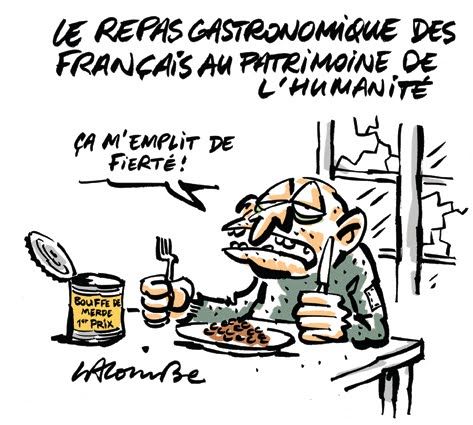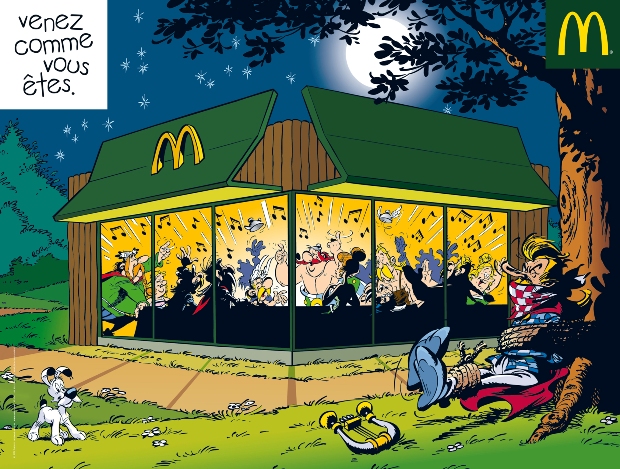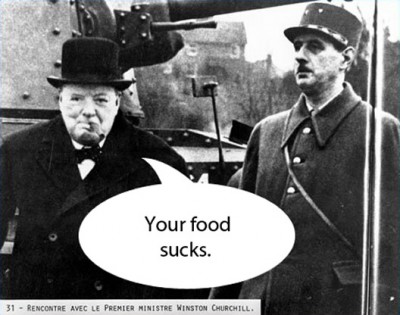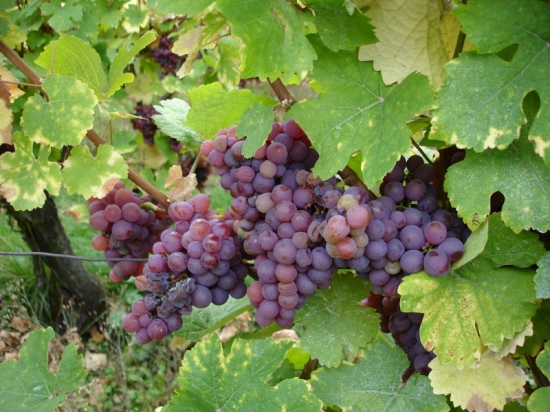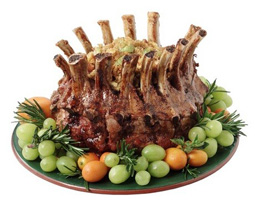Gastronomie française et trinidadienne
French cuisine better than others?
French cuisine has been declared by experts of UNESCO (the UN cultural organization) as “intangible cultural heritage of humanity”. Indeed, the committee for the Safeguarding of the Cultural Heritage of Humanity meeting in Nairobi (Kenya) on 16th November 2010, voted to recognize, not exactly the French cuisine but the French gastronomic meal with its rites and its presentation ; thanks Julia Csergo’s work ; professor at our university. Gastronomic meal has been awarded by experts of the committee because it represents a “social custom aimed at celebrating the most important moments in the lives of individuals and groups such as birthday, weeding, etc”. The “world Intangible heritage” list includes others cultural practices like Mexico‘s day of the dead or traditional Iranian bakhshi music but France is the first nation to be honored for its gastronomic culture. So we can be proud of it!
What is so remarkable in the French gastronomic meal? First of all, French people consider the gastronomic meal as a part of their heritage, and they want to pass this on to their children. It’s an active tradition because in theory it recreates all the time by inputs of each one. This side of the French cook is a part of our cultural identity, to be clear with the gastronomic meal French have the feeling that they belong to the same community. In addition, this reward associate even more French with gastronomy. It got a social function because every member around the table enjoys a good meal together; it strengthens the social cohesion and family ties. What is the description of this special meal? It’s a very special moment with its own codes. To make this meal need anticipation and its preparation is longer than a daily meal; in order to honor the guest. It takes place always following the same ritual:
- The host must think about an unusual menu based on traditional cooking recipes. The food is cooked with good products; the cooker has to care about agreement of all flavours.
- The host will make sure that wines are paired with dishes. Dishes served during the meal follow a typical order before the “aperitif ” , for example, starters at first, then main courses made of fish or a meat with vegetables, and to finish with desserts.
- Layout design is important as well, the host will pay attention to the way of the table is dressed, the precise placing of glasses for water, red and white wine, knife blade pointing in and fork tines down. Plates must be changed between different steps of the meal. Tablecloth and napkin are chosen carefully. We can talk here of an “art of table”.
- The guests adopt good-manners during the meal, they start to eat when the host is seating with them. They smell, taste, and cut food according to codified moves. They talk about ingredients with a special vocabulary and congratulate the cooker; all of this is called “the gastronomic speech”.
- To conclude, guest stay at the table until the end of the meal and sometimes they drink a “digestive” (after dinner liqueur).
To resume, the gastronomic meal is a certain form of gastronomy, it reminds French of their roots and it creates conviviality.
Several big-names chef like Paul Bocuse, Joel Robluchon, have welcomed this decision but I noticed that José Bové shares the same pleasure; he was sent in jail few years ago for trashing a Macdonald’s in the name of good eating. So we can say this vote is also seen like a protection against globalization, against an American way of life in complete contradiction with the idea of this French gastronomic meal. Indeed many people in France say that this vote happens when France feels attacked by globalization, at the level of economic, sportive, and even cultural. It’s not rare in France to heard people say “China doesn’t ask for including their food on the list of intangible cultural heritage because she doesn’t feels threatened “. Lots of countries like Japan criticize the vote; they fear that French restaurants use it to promote their cooking, like a visiting-card. There is a part of true in these worries because France is one of the most visited countries in the world, lots of tourist come there to taste French food, so behind a cultural decision, there is in fact an economic stake. I’m agree with the committee when he says, knowledge of food is a treasure for a community but I’m convinced that this tradition of gastronomic meal is disappearing. I’m not sure that the young generation receives this heritage because to realize this kind of meal, it is necessary have skills, but young French people cook less than their parents and also they drink more spirits than expensive wine. So, I’m just saying it’s hard for young people doing a gastronomic meal, it still exists in majority but it is less studied and sometimes they go in a restaurant to celebrate a birthday or they pay a caterer. They use to eat in fast food restaurant, takeaway food and it’s important to notice that Macdonald’s have the second best turnover in France behind USA.
Nevertheless, television programs devoted to cooking and dinner parties have also proliferated in recent years like “un diner Presque parfait”, generating a mini-renaissance of home cooking; but there is a big difference between looking someone cooking and cook by yourself. In this following video Candidates of this TV show try to guess the meaning of the menu:
To finish, it’s a mistake to classify food of all over the world, because neither is better than another, but obviously each foreign food has his own specificities ; and every culture should be ask for becoming members of this precious list ; for instance Unesco honored traditional Mexican cuisine as well.
So the question is: Do you think France deserves to get this reward? Do you want Trinidad and Tobago follows the example of the France? Do you think Trinidad food needs to get this kind of recognition?
Jean-Baptiste Dumas
How to celebrate Easter in France?
Today, the French will celebrate Easter. A lot of family will share a good meal together. The host will have a lot of work for cooking a wonderful eat. How the Gastronomic food will be organize ? What we could find on the table during this meal ?
The French Family will begin with the Aperitive:
France has a lot of district with different speciality. The Alsatian will drink Glasse of White Wine called Riesling and eat goose Foie gras with rye Bread. In Lorraine a Glasse of grey wine from Toul coast with canapé. In Champagne, people drink Champagne. The family fom Franche Comté will drink a Crémant from Jura a local drink. In Rhône Alpes the district of Lyon people could eat « gratons » small piece of grilled pork.
In the majority of Cases, families eat canapé with local Wine. France has twenty vinery and foreign people call France « country of wine and cheese »
After the canapé, it is the time for the Main Course:
Some History: To celebrate Easter, French families eat the Paschal Lamb. This animal was scarified by Moise a prophet of God. The plagues of Egypt is an attack from God against the Pharaoh in order to obtain the liberty of Israelite people, the blood at the door was an indication for spare Hebraic people to the revenge of God. The Lamb is an allegory meaning the sacrifice of Jesus, the son of God who was died to save the humanity.
Than Eat:
We could eat this with potatoes or carrots or French beans or French Fries for the children.
The last but not the least, the Easter Egg:
There are two methods to eat the Easter egg.
First to chase after a hen.
What??? Any success??
You are very tired after your meal, you can't eat but you want your egg. The garden is too big. Don't worry this men has the solution for you and then you come home happy with your eggs
Send your children to get your chocolate 
Finally you can eat your forward!

Michael Jamet
